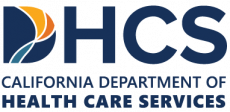It’s an ironic reality that those who have sworn an oath to care for others often learn to neglect their own health. The culture within some healthcare settings tends to belittle fundamental needs like eating nutritious food and getting restful sleep. Physicians face ingrained cultural opposition to practicing self-care, perhaps fearing to appear “weak” or “needy.” At The Practice, we challenge these norms by reminding healthcare professionals that it’s never too late to make a positive change.
The Real Cost of Ignoring Self-Care
Physicians learn early in their careers to prioritize patient care above all else, often at the expense of their well-being. This oversight can manifest in several harmful ways.
- Eating poorly: During intense shifts, you may skip or rush through meals, paying little to no attention to nutritional value. Grabbing a processed or sugary snack from a vending machine and eating it on the run contributes to energy crashes and poor health outcomes.
- Sleep deprivation: Physicians frequently sacrifice sleep in a profession that celebrates working long hours under stressful conditions. Sleep deprivation adversely affects cognitive functions and mood, while increasing your risk of severe health issues like depression, obesity, and cardiovascular disease.
- Working while sick: The pressure to perform often leads physicians to disregard their symptoms and work through illness, which can exacerbate their condition and put patients at risk.
- Using unhealthy coping strategies: Health professionals are uniquely vulnerable to addiction. Relying on alcohol and drugs to cope with stressors like grief from losing a patient can cause you to develop a substance use disorder that may jeopardize the career you’ve worked so hard to build.
Steps Toward Better Self-Care
As a physician, you already know what you should do to take good care of your health, but you may also worry that self-care will seem selfish.
Eat Nutritiously at Work
We encourage physicians to eat mindfully and choose whole, nutrient-rich foods. Bringing prepared meals from home or choosing healthier takeout from nearby restaurants can significantly improve your health and energy levels. It’s also crucial to involve your supervisor and colleagues in promoting a culture that normalizes healthful eating on shift.
Improve Your Sleep Hygiene
While maintaining a consistent sleep routine might be unrealistic for many doctors, especially interns and residents, you can improve your sleep hygiene by making small changes like minimizing light exposure, regulating your room temperature, and avoiding alcohol and caffeine. Employers should consider scheduling practices that allow physicians to take adequate rest between shifts.
Take Time off When Sick
Modeling and encouraging behavior that prioritizes health demonstrates responsible self-care and sets a precedent for your colleagues to follow. Normalize taking time off when you do not feel good.
Find Healthier Coping Mechanisms
An estimated 10% to 15% of health professionals will become dependent on a substance at some point in their careers. Doctors have easy access to addictive prescription medications like opioids and benzodiazepines and may use them despite knowing the risks. Some physicians also start using illegal drugs like cocaine to cope with high-pressure environments. If you have ever relied on alcohol or drugs as an outlet for complicated feelings, seeking help in a judgment-free environment can help you get your life and career back on track.
How The Practice Helps
At The Practice, we understand the unique pressures you face at work. Our programs equip physicians with constructive ways to manage stress, combat burnout, and develop healthy coping strategies.
Physicians dedicate their lives to taking excellent care of others, but you cannot succeed in this mission without looking after yourself. As the healing place for healers, The Practice pledges to be part of a much-needed cultural shift within the healthcare industry. Contact us today to learn about our evidence-based treatment program for medical professionals.


